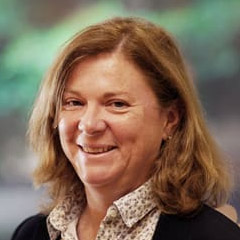Samantha Kerr is arguably the best Australian footballer going around.
Gladys Berejiklian is smart, hard-working and popularly elected.
Gina Rinehart has turned a dynasty into an empire.
We’re going to university and getting degrees in our highest numbers, owning our own businesses and participating in the workforce in record numbers.
Add to that a recent report about the future of financial advice from CA ANZ which found women are more involved in household finances than ever before.
I could continue, but you get the drift: Australian women today are richer, wealthier and smarter and more empowered than ever before.
Which begs the question: why, when it comes to money and financial literacy, are we so far behind?
The OECD definition of financial literacy is a combination of awareness, knowledge, skill, attitude and behaviour necessary to make sound financial decisions and ultimately achieve financial wellbeing.
That sounds like a pretty reasonable combination of skills — understand what’s happening in your life financially so that we can make more informed decisions that ensure our financial wellbeing.
But, unfortunately, it’s a case of reason versus reality.
The fact is that women are living longer than ever before, participating in the workforce at higher rates than ever before, but have taken their eye off the ball when it comes to personal finance.
Let me give you the raw numbers.
On average, women retire with half the super balance of men.
Forty-one per cent of women report that making money decisions is stressful and overwhelming.
Eighty-five per cent of women under the age of 35 don’t understand fundamental investment concepts.
And 40 per cent of older, single, retired women live in poverty and experience economic insecurity in retirement.
On one hand, we should take into account the inherent challenges with the gender pay gap, the fact many women leave or take considerable time out of the workforce when they have kids, and that their jobs get impacted when it comes to caring for ageing parents.
However, more needs to be done, and more responsibility taken, to ensure women feel confident enough to make financial decisions and to exercise control over their financial futures.
So, let’s start the conversation.
It’s not easy to talk about money, and it may not be particularly exciting either.
But we need to start thinking and talking about money and investing, and tax and superannuation.
Because if we don’t, then who paves the way for the next generation of boys and girls to learn that talking about finances is OK, not to mention the consequences of inaction?
To educate our daughters and nieces and granddaughters about the importance of becoming more aware of our financial decisions and the long-term ramifications of our financial choices.
When we are open to sharing our lessons and experiences around money and investment decisions, we inspire other women to investigate and consider their own financial futures and how they can make good changes that will benefit their lives in the long term.
We put in place not just a virtuous cycle for our daughters, but also a safe one. One that leads to self-determination.
And just to put my money where my mouth is, here are three practical things you can do today to get you on the right track.
Firstly, make extra contributions to your superannuation. That tax refund that you get every year, why don’t you put some of it towards your super?
A little bit extra goes a long way, particularly when you consider that money you invest from last year’s tax cheque is tax deductible this year, meaning you’ve got more to invest in tax-deductible super contributions.
Secondly, start saving. It seems simple, but often it is overlooked. Pay your saving first, don’t wait until you see what is left over. When you have a little bit put away each week, and it doesn’t have to be much, it will change the way you think and feel about money.
And finally, when in doubt, ask someone! Find your local chartered accountant or financial adviser to get some guidance. There is no question too silly when it comes to securing your long-term financial future, just silly answers if you don’t get the right advice.
So, what are you waiting for?
This International Women’s Day, let’s make it our business to get ahead when it comes to financial literacy.
Because without it, we are doing a disservice to ourselves and creating a barrier to achieving true economic equality.
Geraldine Magarey, thought leadership and research leader, CA ANZ

 Login
Login






